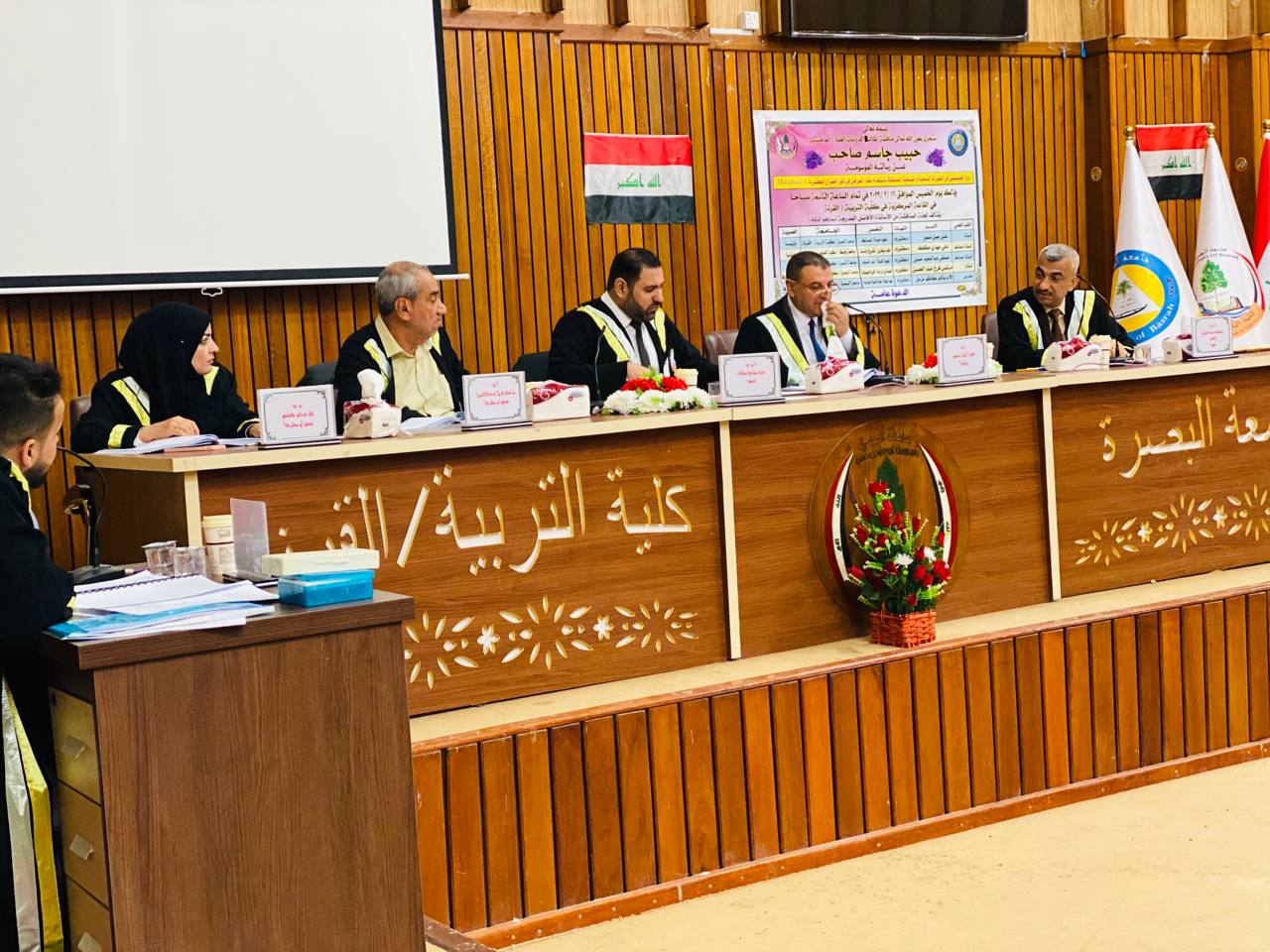
A master's thesis in the Department of Life Sciences at the College of Education, Qurna, University of Basra, discussed the study of the role of genistein in histological and physiological changes induced by using morphine in male laboratory rats, mus musuls L, on 2/16/2023.
Researcher Habib Jassim Sahib
In the central hall of the College of Education / Qurna.
The study dealt with the use of the hormone genistein as an antioxidant and anti-inflammatory to reduce the side effects caused by morphine on the various organs of the body.
The study included the physiological side, which included blood images (withe blood cells, Redblood cells, hamoglobin, packed cell volume) and biochemical tests included liver enzymes (Aspartate transaminase, Alanine aminotransferase, ALP), kidney tests (Urea, creatinine) and the level of (triglycerides, cholesterol, Glucose) and sex hormones (Testoserone) in addition to their effects on the tissue side ( Liver, kidney, lung, testicles)
The results of the study showed that genistein significantly improved the pathological effects caused by morphine on the physiological and histological side, and the reason for this may be attributed to the role of genistein as an antioxidant if it stimulates the production of antioxidants and reduces the level of free radicals resulting from the metabolic activities of morphine inside cells The body also acts as an anti-inflammatory by reducing the level of inflammatory cytokines that stimulate their production when using morphine.
While genistein can be used as a plant estrogen to reduce the effects of tolerance resulting from drug addiction by stimulating the brain to produce endorphins.









